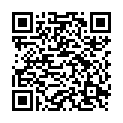|
|
|
| Module code: E803 |
|
|
1V+1P+2PA (4 hours per week) |
|
5 |
| Semester: 8 |
| Mandatory course: yes |
Language of instruction:
German |
Assessment:
Project
[updated 12.03.2010]
|
E803 (P211-0252) Electrical Engineering, Master, ASPO 01.10.2005
, semester 8, mandatory course
|
60 class hours (= 45 clock hours) over a 15-week period.
The total student study time is 150 hours (equivalent to 5 ECTS credits).
There are therefore 105 hours available for class preparation and follow-up work and exam preparation.
|
Recommended prerequisites (modules):
None.
|
Recommended as prerequisite for:
|
Module coordinator:
Prof. Dr. Reinhard Brocks |
Lecturer:
Prof. Dr. Reinhard Brocks
Prof. Dr. Michael Igel
[updated 12.03.2010]
|
Learning outcomes:
This course will teach students how to apply the basic principles of object-oriented and generic programming using C++. They will be able to apply design methodologies and development tools to the software development process. Working on small projects, students will be required to research and acquire new knowledge, as well as learning how to coordinate their work with others and how to present their results.
[updated 12.03.2010]
|
Module content:
- Object-oriented and generic programming:: Overloading operators, inheritance,
exception handling, templates
- Design methods:: UML class diagrams, UML sequence diagrams
- Programming techniques and design patterns: e.g. Singleton, Wrapper, Visitor,
Command
- Software development tools: Integrated development environment, UML Design
Tool, version management
- Libraries: e.g. MFC, STL, OpenGL
During the semester, students will undertake a software project in which they will utilize the language constructs, design methods, tools and several of the libraries mentioned above.
[updated 12.03.2010]
|
Teaching methods/Media:
Accompanying lecture notes. The lab course and the project work are carried out in one of the IT labs.
[updated 12.03.2010]
|
Recommended or required reading:
Reference books
Kernighan, Ritchie: Programmieren in C, Carl Hanser Verlag 1988, ISBN 3-446-15497-3
Stroustrup, B.: Die C++ Programmiersprache, 4. aktualisierte Auflage, Addison-Wesley 2000, ISBN 3-8273-1660-X
Textbooks and workbooks
May, Dietrich: Grundkurs Software-Entwicklung mit C++, Vieweg 2003, ISBN 3-528-05859-5
Prinz, P., Kirch-Prinz, U.: C++ Lernen und professionell anwenden, MITP-Verlag 1999, ISBN 3-8266-0423-7
Prinz, P., Kirch-Prinz, U.: C++, Das Übungsbuch, MITP-Verlag 2004
Erlenkötter, H.: C++, Objektorientiertes Programmieren von Anfang an, rororo 2000, ISBN 3-499-60077-3
Breymann, U.: Die C++ Standard Template Library, Addison-Wesley 1996, ISBN 3-8273-1067-9
Lecture notes
Folz, H.G.: Programmiersprachen 1, Einführung in C++, Course notes WS 1999/2000, HTW des Saarlandes
Folz, H.G.: Programmiersprachen 2, Objektorientierte Softwareentwicklung mit C++, Course notes SS 2000, HTW des Saarlandes
[updated 12.03.2010]
|


